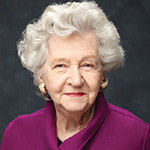October 15, 2019 — By Frances Kolarek —
By Frances Kolarek —
Why “senior citizen” rubs me the wrong way I cannot explain. And get out of here with “senior.” I’m not yet ready to graduate. Not a bit interested in that final diploma.
Old. So many connotations. Old shoe denotes comfort. Old hat means yesteryear. Old times evoke nostalgia. Old woman? Old man? —The stereotypes come crowding in. None complimentary.
What we need is New Words for Old. That’s a crib from a New York Times column a few years ago. Jack Rosenthal mused that with so many of us living so much longer, we need a designation, a name to call these millions. Wellderly and illderly have been proposed but they haven’t caught on. “That witty distinction doesn’t solve the larger nomenclature problem. Language has not yet caught up with life,” Rosenthal suggests.
“There is probably no single acceptable term — because no single term can embrace so vast and varied a population. The ultimate answer will most likely be a suite of functional and factual terms, like the typology scholars use to distinguish between the young old, 65 to 80; the old old, 80 to 90; the oldest old, 90 to 99; and centenarians.
“Terms like these, though somewhat awkward, are apt to enter common usage as society faces up to the new age of age. Necessity is the mother of locution,” he concludes.
On a less lofty plane, the 60-plus-year-old writer of a letter to the editor of The New York Times, annoyed that her age group had been relegated to the category of the elderly, sorts through various terms describing older people, and explains that she doesn’t identify with any of them — “Well, maybe seasoned and venerable.”
But, she adds, “I prefer to think of myself as being in the cocktail hour of life, just gearing up for the main event.”
Buy that lady another drink.
Readers: Do any of you have a new word for old? Please. Help us out. Drop me a line at [email protected].